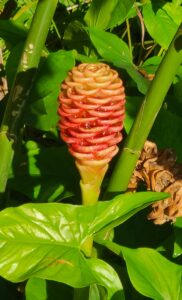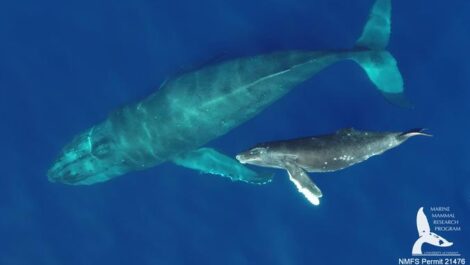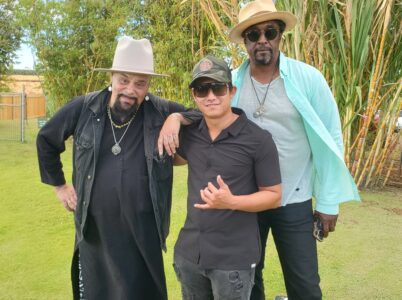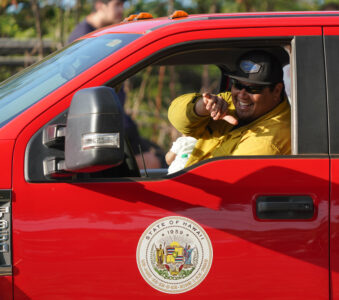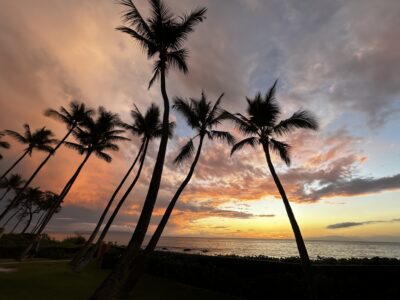Island reggae band ʻĀinaty performs tonight at the Maui County Fair
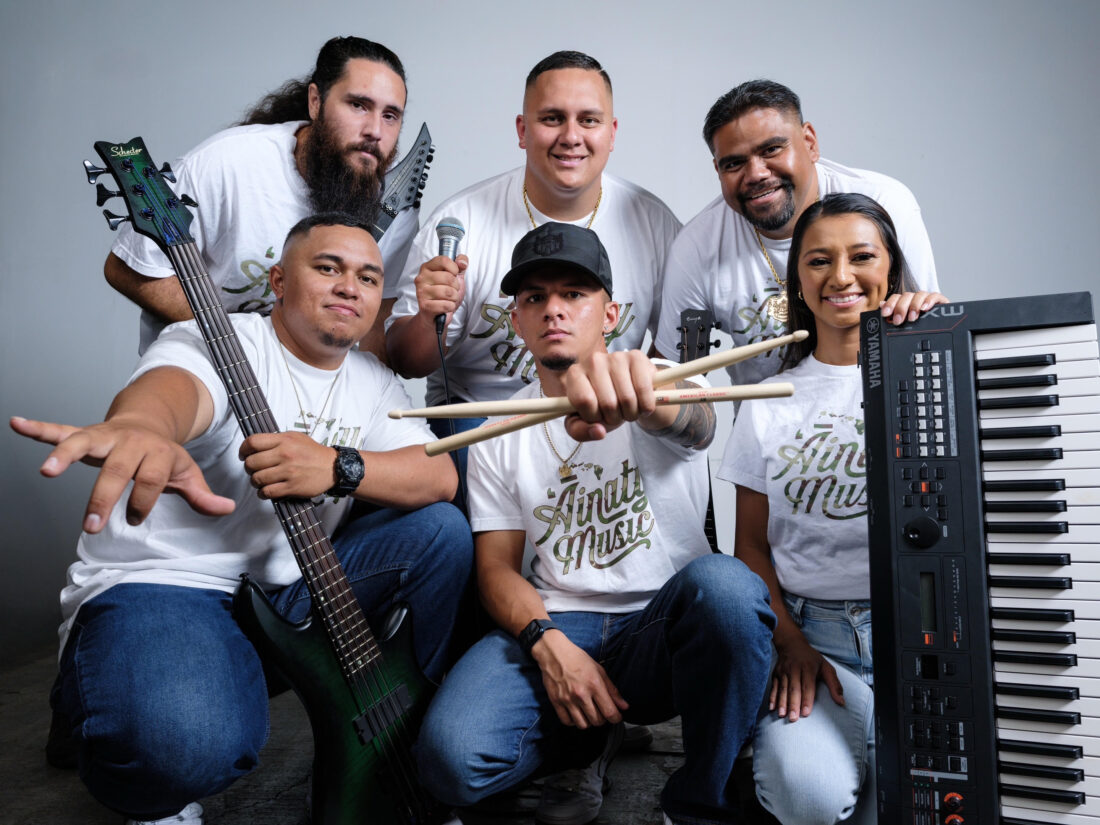
Island reggae band ʻĀinaty is led by Grammy-nominated Maui musician Kamalei Kawaʻa. ʻĀinaty will perform at 9 p.m. tonight at the Maui County Fair. Courtesy photo
The Maui County Fair is back, and along with many thrilling rides and attractions, it’s hosting a major lineup of island talent with tonight’s entertainment closing with Grammy-nominated Maui musician Kamalei Kawaʻa’s new group ʻĀinaty.
Blending righteous island reggae with traditional Hawaiian values and modern musical styles, they create a fresh sound that speaks to both past and future. Opening their first single, the righteous “ʻĀinaty,” in Hawaiian with the state motto, they sing, “We come in peace, we move with love.”
The band also includes Kalena Montalvo, Kamaehu Kawaʻa, Kaloi Montalvo, Nalu Robinson and Jon Ako.
A former member of Nā Wai ‘Ehā, Kawaʻa and the Maui group won Most Promising Artist of the Year at the 2019 Hōkū Awards for their self-titled debut. Then their album “Lovely Sunrise” won Group of the Year, Hawaiian Music Album and Hawaiian Language Performance at the 2020 Hōkū Awards, and it was nominated for a Grammy Award.
A contestant on NBC’s “The Voice” in 2024, Kawaʻa grew up loving reggae. “My music journey started with island reggae music,” he explained. “Not too many people know Nā Wai ‘Ehā originally was an island reggae band. We originally started in middle school called Righteous Youth, then we renamed ourselves Nā Wai ‘Ehā.”
As a hula dancer with a Kumu Hula mother, he was steeped in Hawaiian culture growing up and began to shift his band’s music. “That was always a part of me,” he said. “One day my mom sat me down and she had a talk with me about kuleana, about responsibility. As a Hawaiian culture practitioner, a Kumu Hula’s son, there is this responsibility to learn and perpetuate Hawaiian music. She told me, ‘I love what you’re doing with your island reggae music, and I know it’s a lot of fun, but you have a kuleana that you need to take care of.’ So at about 16, I made the decision to start learning more Hawaiian music. I was surrounded by amazing Hawaiian musicians my whole life, but I never took the effort to create a band and to sing this music in public.”
Performing with Nā Wai ‘Ehā, “slowly over the years, we leaned more towards Hawaiian music, because there weren’t a lot of kids our age doing it. We felt more of a responsibility to take that on and to really push Hawaiian music. So for the past 10 to 12 years now, it’s been Hawaiian music for me.”
The shift back to reggae came with the opportunity to compete for “The Voice,” where he ended up singing two classic Bob Marley songs, “Redemption Song” and “No Woman No Cry,” to praise by the show’s judges.
His powerful version of “Redemption Song,” performed at the blind auditions, won a two-chair turn from Chance the Rapper and country star Reba McEntire. Full of praise for Kawaʻa’s soulful delivery, Chance the Rapper enthused: “Doing ‘Redemption Song’ in front of millions of people — it brought something out of me. It’s a very radical song, and it means a lot to all oppressed people around the world. I think having you on here and representing Pacific Islanders, Indigenous people, Hawaiians, people around the world, I think it’s really important for the show to have.”
Kawaʻa found the experience very empowering on many levels. “Before I went to ‘The Voice,’ I was teaching at Seabury Hall,” he noted. “I was a Hawaiian music teacher, Hawaiian language and culture teacher for about six years. But I always had this passion and this want to do music full time. I’ve played music for a long time now, but it was always the side hustle, and ‘The Voice’ really forced me to figure something different out. In going to ‘The Voice,’ I had to leave my job and my family, and I was away from them for about five and a half months. While I was there, it really got me thinking, I’ve got to use my talent to make sure that I’m never in this position again, where I’m going to be worrying about a job and worrying about my family. That inspired me to kick-start the process to do music full time, to push myself as a local artist offering entertainment packages and music.”
And thus ʻĀinaty was born. “So now I’m a full-time musician, and I’m really lucky to be really busy as a full-time musician. It changed my whole career, and I credit ‘The Voice’ for kick-starting all of that for me. It also gave me a ton of confidence, a lot of reassurance that I probably wouldn’t have believed unless it came from John Legend, or from Chance the Rapper or Reba McEntire.”
After releasing the inspirational single “ʻĀinaty,” they will release “Lovers Rock” in October. The plan is to release singles and videos for a few months. “Right now, we’re working towards exposure through singles and music videos, just to get people to know our music and hopefully fall in love with us,” he said. “I dedicated enough time to Hawaiian music, so now I can go back to something I also love, which is island reggae music.”
ʻĀinaty will perform at 9 tonight at the Maui County Fair. Hālau o ka Hanu Lehua with Kumu Hula Kamaka Kukona perform at 6 p.m., followed by Wehilei at 7:30 p.m.
Friday’s entertainment begins at 6 p.m. with Jordan Soon, followed by Kalani Pe’a, and a Fiji tribute with Damon Williams, Pi’ilani Arias and Loeka Longakit.
On Saturday, Kaina Kountry opens at 12:30 p.m., then it’s the Hawaiian Airlines Serenaders, Mikey Mina, Da Braddahs, Hawaiian Time, Ka’ikena Scanlan and Redmelo.
Sunday opens with Mark Yamanaka at 12:30 p.m., followed by Hālau Nā Lei Kaumaka O Uka with Kumu Hula Napua Silva, Ku’uipo Kumukahi, Hālau Ke’alaokamaile with Kumu Hula Keali’i Reichel and Henohea Kāne, Nā Leo Pilimehana, and Nuff Sedd will close.

